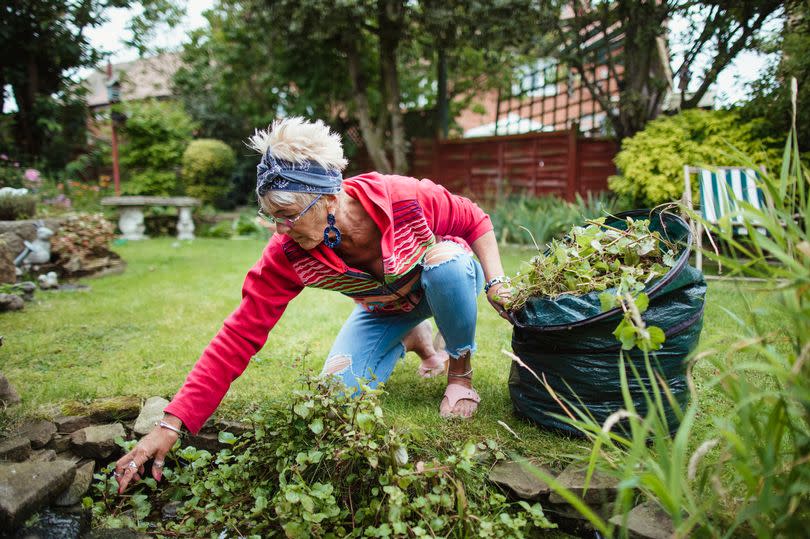Gardeners warned to stop using vinegar to kill weeds this summer

Gardeners have been urged to exercise caution when using vinegar as a weedkiller in their gardens this summer.
The annual battle against weeds sees gardeners trying every possible method to eradicate invasive plants and weeds from lawns, raised beds, and driveways. In recent years, environmentally conscious gardeners have started using vinegar as a natural weedkiller, instead of shop-bought sprays.
One major advantage of vinegar is that it's not only cheap and readily available in your kitchen, but it's also less harmful to the environment than traditional chemicals, making it better for insects and wildlife.
The protection of bees and other pollinating insects is crucial, as experts have observed drastic declines in populations by up to 80% - without them, we can't grow food, reports the Express.
READ MORE New King Charles banknotes circulated with 'cash limit per person'
However, gardeners are being warned that vinegar can still be harmful to bees, which are vital pollinators that we're all trying to protect by avoiding lawn mowing and sowing wildflowers. As one expert explains: "Vinegar is an astringent. If applied topically in a strong enough solution, it will dissolve the coating on the hairs of the trachea and the bees will drown".
Another expert added: "Vinegar, particularly household vinegar with a concentration of around 5 per cent, is often used as a natural and environmentally friendly weed killer."
"When vinegar is sprayed directly on weeds, it can also affect surrounding plants and flowers, potentially harming beneficial insects like honey bees that rely on these plants for food and habitat. Additionally, the acidity of vinegar can disrupt the pH balance of the soil, affecting the ecosystem in which bees and other insects live."
Despite vinegar being a more bee-friendly alternative to harmful traditional weedkiller chemicals such as glysophate, it is still critical to exercise caution in order to protect our beloved buzzing friends.
"Consider using vinegar early in the morning or late in the evening when bees are less active," they added. "If possible, spot-treat weeds individually rather than applying vinegar over a large area."

 Yahoo News
Yahoo News 
